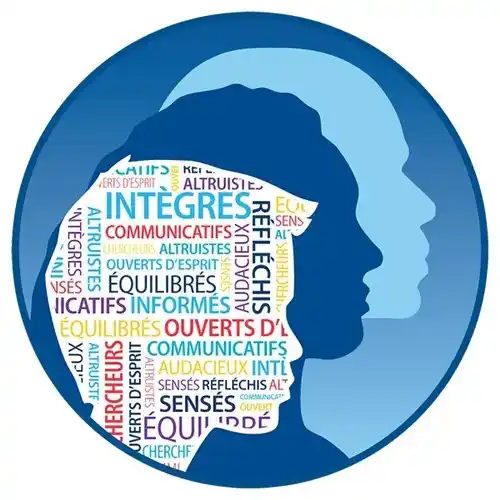Here are a few TOK essay examples from the previous TOK essay examples 2020 batch
TOK ESSAY EXAMPLE 1
“Accepting knowledge claims always involves an element of trust.” Discuss this claim with reference to two areas of knowledge.
A knowledge claim is something that we are sure about, and therefore, we believe it to be true. Since truth is subjective, its veracity can be questioned. Hence, the acceptance of a knowledge claim requires reliable sources that are mutually considered trustworthy.
Trust is the willingness to accept vulnerability based upon positive expectations about another’s behavior.[1] It is essentially a brain function that begins right from the time of birth.[2] We are far more likely to trust something similar to us in some dimensions. The greater the similarity, the stronger the trust grows.
IBDP Predicted Grades Improvement – [ Join Now ]
Trusting knowledge claims requires a conscious awareness of domain knowledge and a broad range of unobstructed cognitive progression. It involves using invisible filters and lenses formed based on our experiences, including ways of knowing.
The acceptance of knowledge claims may have varying degrees as ‘sometimes’ the element of trust may be weak or partially eroded during the acceptance. Hence, the word ‘always’ is debatable. In general, acceptance is a multidimensional approach as it may be out of sheer willingness, authority, evidence, bias, and situations.
The connection between acceptance and trust is not ‘always’ strong because trust develops with time, experiences, relationships, and visibility seen in practice but not invariably mentally interpreted. Therefore, it is cognizant to dissect the acceptance and trust in AOKs, like history and human science, to frame an argument for and against the title.
To what extent is it possible to establish the truth about the past?
Different memories express the result of a person’s trajectory throughout their lives. Memory collectively aggregates many events, facts, and objects with individual witnesses and experiences.
However, in isolation, the individual is considered the product of social interactions and an essential source to form claims in history (personal knowledge). However, the general notion of memory being an active and accurate contributor to knowledge claims in history cannot be applied to particular cases.
 Strengthen Core Concepts with Online Revision Bootcamps!
Strengthen Core Concepts with Online Revision Bootcamps!
The personal experiences of the narrator also contribute to the field research. For instance, the details about the second Punic war can be best taken from military events accounted for by Polybius, including his interviews with major commanders and visits to some of the battlefields.[3] He commanded greek troops and fought the Achaean War. Polybius’s narration is viewed with accuracy pertaining to roman warfare and an accomplished military eye.
The first-hand information, experiences play an active role to make Polybius’s work trustworthy. However, memory is often blamed to have selective attention and partial retrieval.[4] Therefore the impressions created could insufficiently focus only on what the mind has captured. And it is possible to forget and misremember something too.
Additionally, ‘Mein Kampf”, written by Adolf Hitler, has been a victim of social bias as it reflects the interest of one social group, perhaps one individual. ‘Mein Kampf’ focuses on Hitler’s plans to transform German society through expansion, including his discussions on anti-semitic worldview, leading to social unrest.[5] Its hateful language and concepts may propel painful memories, especially in Germany.[6]
📈 Online Classes for Paper 1 & 2 Exam Technique
However, to trust such claims, one must study the author and his psychological approach before forming perceptions that it is a dangerous book.[7] Langage is capable of being dissected and accused of its intention. Moreover, the meanings due to denotation theory are exposed to several interpretations. It is believed that Hitler’s aggressive words were then and now capable of inducing violence, and therefore, the book is banned since World WAR II.
Knowledge claims in history possess greater elements of trust if they are collective evidence from past eras, including cemeteries, the founding of museums, collections, etc.[8] Nora (1980) professed that historical events are perceived as transitory, and history does correspond to the time period that characterizes movements and recollections transmitted from one generation to another.
Nora rejected individual memories as documentary sources and claimed that collective memory (shared knowledge) is far more reliable evidence to make claims about the past in history trustworthy.[9]
However, the investigation into the historical inquiry has often been disputed because the historical explanations have their own logic and rely on deductive models. Sometimes, the lack of appropriate strategies and evidence for historical inquiries forces us to depend on it, thereby misleading historical explanations. It is believed and often criticized that most authors and publishers designed the story to be told and hide something of no interest.
The element of trust is furthermore unconvincing when knowledge claims about greek and roman military history are studied. While languages are rule-governed and intended, the rational explanations and reporting of events by Greeks largely remain unreliable, biased, incomplete, or even false.[10] Questionable arguments have often been raised on the factual accounting of events misreported.
For instance, Anuja Chandramowuli, in her book on Tuglaq, depicts Tughlaq as a cruel ruler who violates religious policies and a war aspirant. Unfortunately, the author has used her imagination to fill in the information gaps and makes the reader unaware and deprived of Tughlaq’s victories, personality, challenges, and overall life.
The author referred to multiple sources to connect the dots about Tughlaq’s life, supposedly a hit-and-run strategy to morph the humanness and vulnerabilities that convey different knowledge claims.[11] Her audience has accepted the same due to the concept of mass acceptance, where the element of trust does not lie in her claims. Her book misses the collective approach that a historian adopts to help people accept claims in history and eventually trust them.
While trust in history has been a matter of concern due to memory and language, it is pragmatic to explore the extent to which trust in knowledge claims in human science can be established through emotions and reasoning. Trust is essential to survive. Human beings are naturally predisposed to trust. The tendency to trust made sense in our evolutionary history.
Should emotions be accepted as evidence to establish claims?
Emotions are well-known governing tools to make judgments. They resemble judgments as most judgments involve trust influenced by feelings. The harsh judgment of bombing Hiroshima and Nagasaki was considered a necessary act for the greater good but also unfortunate[12]. 85% of Americans approved of it during a poll in 1945, however, by 2015, the share of Americans trusting the decision of nuclear weapons was believed unjustified as only 56% approved.[13]
 Draft Your IB Extended Essay Live with an Online Tutor!
Draft Your IB Extended Essay Live with an Online Tutor!
Most humans demonstrate social emotions through which the element of trust is formed. However, in Truman’s case, the American President did not show any regret, even if he felt any[14]. However, other sources claim that his decision to stop any further bombing after the Hiroshima-Nagasaki incident hints the same.[15]
Emotions like regret, social pressure, and disgust sometimes assist us to reflect and trust our own decisions who we sometimes claim to be correct. Probably, a poll may have been conducted to imply personal thoughts versus shared opinions to gather a wider insight about reactions.
Considering, Japanese aggression during WWII, the decision of bombing seemed trustworthy because it was unlikely for them to surrender.[16] It is claimed that Nuclear bombing stopped WWII for good and prevented subsequent deaths from a protracted conflict.[17] Many trust this claim through logical reasoning and Utilitarian argument. It arguably discouraged the descent into nuclear war for the rest of the 20th Century.
🧭 Online TOK Essay Support with Step-by-Step Feedback
Japanese philosopher Masahiro Morioka made connections between the utilitarian argument and bombings.[18] While, it was shocking to see that, both the situations had common ethical judgments of saving more lives to sacrifice few lives, what remains emotionally wrong is the inconsideration of the killed victims and their perspectives.
Trusting your own decision in such critical conditions may not be accurate. The implicit theories in psychology have often provided evidence about how we quickly trust our implicit personality.[19] However, research claims that such judgments are self-overrated due to one’s feeling of safety and security. Though, our likely tendency to recall information and subsequent trustworthiness places us in a vulnerable situation.
Not only this, we rely on third-party verification to trust the character of another person. Such transitive trust, according to Bernie Madoff, cultivates a false sense of security and jeopardizes social trust in general.[20]
Trusting a knowledge claim requires paying more attention and over-weighing evidence. This creates a worst-case scenario when people think that their judgment is better than the average, unfortunately, contributing to errors, and trusting claims about ‘trust in humans’ has been considered risky.[21]
Undoubtedly, trust is an essential ingredient in accepting widely profound claims. Accepting disseminating knowledge must have the fundamental importance of a claim; however, philosophical disagreements may often constrain our horizon of comprehension. Such disagreements present a range of theoretical arguments, competence, evidence gathered, and, above all, expectations and beliefs in denying a claim.
If one cannot trust the source, then everything built on it is untrue. Trusting memory to accept knowledge claims in history has been questioned due to its subjective nature and the weak deductive approach. However, the narrator’s personal experience has been considered a valuable and trustworthy element for historical claims.
 Customizable IB Online Study Plans by Level & Need!
Customizable IB Online Study Plans by Level & Need!
Few exceptions can be drawn here because of the perception of the author and the topic of discussion from society’s viewpoint. Incidentally, individual memory is very often rejected and considered trustworthy rarely while collective memory is considered credible. However, claims which are dated back and have little evidence for their occurrence remain questionable due to the mercy of the author’s approach.
Whereas, in Human Sciences, it is witnessed that trust shifts and changes due to the changes in social emotion and time. On certain ethical grounds, accepting knowledge claims, especially in psychology, remains trustworthy. However, implicit theory reveals that we often accept and trust situations through confirmation bias leading to poor judgments. Trust in human science is more widely proclaimed through emotions than anything else.
Overall, accepting knowledge claims does not ‘always’ involve trust but ‘sometimes. It is the WOKs that have the power to generate varying degrees of trust in different AOKs.
Bibliography
[1] http://journal.sjdm.org/bb10/bb10.html#:~:text=Definitions%20of%20trust%20vary%20but,Burt%20and%20Camerer%2C%201998).
[2] https://www.sciencedaily.com/releases/2008/05/080521120511.htm
[3] https://www.britannica.com/biography/Polybius
[4] https://www.researchgate.net/publication/324272147_Memory_and_Attention
[5] https://www.britannica.com/topic/Mein-Kampf
[6] https://theconversation.com/mein-kampf-publication-the-best-way-to-destroy-hitlers-hateful-legacy-51707
[7] https://www.newyorker.com/books/page-turner/does-mein-kampf-remain-a-dangerous-book
[8] https://www.researchgate.net/publication/259310300_History_and_Collective_Memory_The_Succeeding_Incarnations_of_an_Evolving_Relationship
[9] https://journals.openedition.org/rccsar/157
[10] https://www.historynet.com/can-trust-ancient-texts.htm
[11] https://scroll.in/article/924448/muhammad-bin-tughlaqs-story-cannot-be-told-in-an-unconvincing-furious-account-of-a-violent-life
[12] Can nuclear war be morally justified? – BBC Future
[13] https://www.pewresearch.org/fact-tank/2015/08/04/70-years-after-hiroshima-opinions-have-shifted-on-use-of-atomic-bomb/
[14] Did Truman Ever Regret His Hiroshima Decision? | Opinion (newsweek.com)
[15] https://www.bbc.com/future/article/20200804-can-nuclear-war-ever-be-morally-justified
[16] https://www.historyextra.com/period/second-world-war/atomic-bomb-hiroshima-nagasaki-justified-us-debate-bombs-death-toll-japan-how-many-died-nuclear/
[17] https://www.history.com/news/hiroshima-nagasaki-bombing-wwii-cold-war
[18] https://www.researchgate.net/publication/318983491_The_Trolley_Problem_and_the_Dropping_of_Atomic_Bombs
[19] https://www.sciencedirect.com/topics/social-sciences/implicit-theory
[20] https://hbr.org/2009/06/rethinking-trust
[21] https://www.ncbi.nlm.nih.gov/pmc/articles/PMC3327534/
If you like what you read, you may consider reading IB Tok essay






